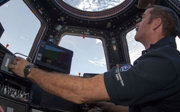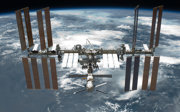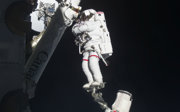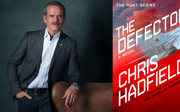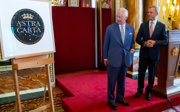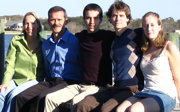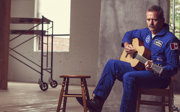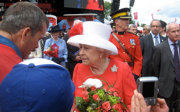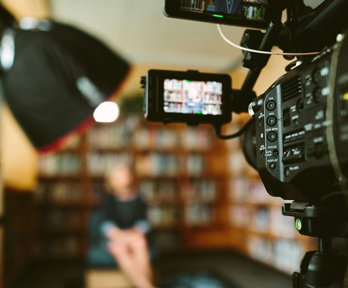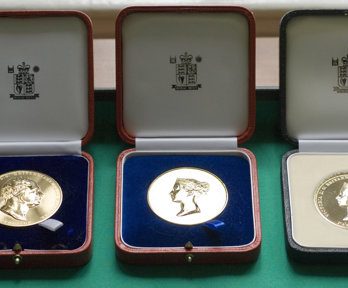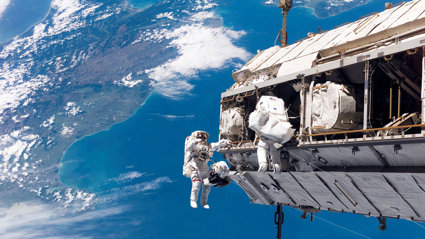
Q&A with Colonel Chris Hadfield
Read our interview with Colonel Chris Hadfield, recipient of the Ness Award 2024.
Chris Hadfield is a former astronaut, engineer, fighter pilot, and a published author. He served in the Canadian Armed Forces as Air Command fighter pilot prior to becoming an astronaut. As an astronaut, Chris flew three space missions and served as commander of the International Space Station (ISS). Notably, Chris is the first Canadian to command the ISS and to have performed work in space outside a spacecraft.
Chris is also the author of several published works, including his autobiography and New York Times bestseller, An Astronaut's Guide to Life on Earth (2013), a Cold War crime thriller The Apollo Murders (2021), and The Defector (2023) a thriller full of political intrigue.
I hope that the risks that I have taken and things I have accomplished have set an example and pushed back the edges of what’s possible.Colonel Chris Hadfield
What did you want to be, or where did you want to work, when you were a teenager?
"I wanted to do what I eventually did and that was to turn myself into someone who could fly in space…an astronaut. I decided that when I was ten years old. I’m one of those lucky people who have managed to turn their dreams into reality."
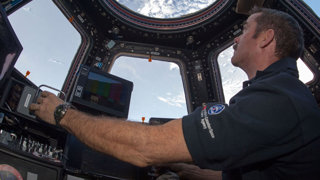
What role do you do now and how would you describe your work?
"I’ve had multiple careers. I was in the Royal Canadian Air Force for 25 years. A combat fighter pilot during the Cold War. Following that, I was a test pilot in the Royal Canadian Air Force, the United States Air Force and the US Navy where I supported the development and testing of new airplanes and systems so they fly better and more safely. Then I got selected as an astronaut.
"I served 21 years as an astronaut, helped to build two space stations, flew three space missions and did two spacewalks. On the ground I had other jobs at NASA Mission Control. Lived in Russia for five years, where I worked as director of operations for NASA, and was Chief of Robotics for NASA’s astronaut programme, where I also did training.
"I became a private citizen 11 years ago. Since then, I’ve become a director of several companies and involved in others, including the Creative Destruction Lab. I’ve written five books and co-created TV series with National Geographic and the BBC.
"As for what I do now, I am currently writing my sixth book, consult to a lot of businesses and speak all over the world. I work with several non-profits on policy issues and am involved with the ‘Astra Carta’, which is part of the Sustainable Markets Initiative that was founded by King Charles. It’s been great working with them on this and very worthwhile – a good application of his influence."
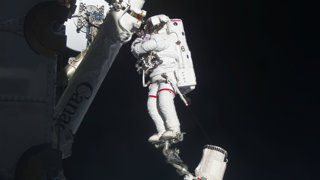
How did you get into this field of work?
"To be an astronaut, which was a few careers ago, you need four things:
- A burning desire that this is what you want to do with your life, as it will be complex, demanding and dangerous.
- A very healthy body so you can be away from Earth for a long time.
- A proven ability to learn complicated things – I have degrees in aviation systems and mechanical engineering.
- Able to make good decisions in hard situations, as there are times you will need to make choices that could mean life or death.
"I started deliberately changing myself at 10 years old to meet these requirements. I focused on learning new skills, obtained two different university degrees, learnt new languages, learnt to scuba dive and worked in many roles, including as a pilot, fighter pilot and test pilot before becoming an astronaut."
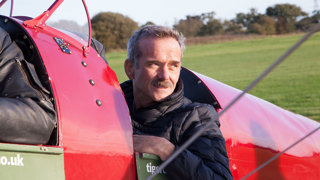
What is one thing you wish you had learned earlier in your career?
"One thing is very trivial. There are ten million things I wish I’d learned earlier. If I had to pick one, I wish I’d learned other languages earlier – they get harder to learn as you get older."
What has been the highlight of your career, regardless of how big or small, so far?
"Difficult to say, but some of the most singular things are because I’m Canadian, and as space flight is relatively new there, I had the opportunity to be the ‘first’ in several instances.
"I did the very first space walks that any Canadian has ever done, and unveiled, in space, the Canadian $5 banknote that celebrates that spacewalk. I’m also the only Canadian to have commanded a spaceship."
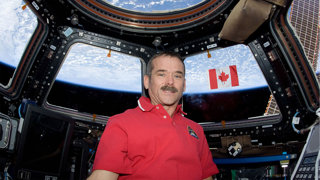
Do you have any advice for someone wanting to go into your field?
"To expand on the requirements I outlined above:
- Keep your body in shape – you get to choose every single thing you eat, make conscious decisions.
- Get an advanced technical education.
- Learn how to make decisions and stick with them.
- Be driven by a burning desire that this is what you want to do with your life."
What three words would you use to describe your life and work?
"Trying to describe 65 years of life and achievements into three words is trivialising it. Watch a sunset and tell me about it in one word, that would be insufficient to capture the experience – it would be inaccurate and incomplete.
"If you must have three words: fascinating, challenging and hopeful."
What are you looking forward to in the future? What’s next?
"Everything you look forward to is in the future. :)
"I look forward to every single day. I’m writing my sixth book, and curious to know how my characters will turn out. I’m also excited that we are on the cusp of settling on the Moon. There is now the technology available that makes this possible. I’m also looking forward to evidence being found on Mars that shows for sure that we aren’t alone in the universe.
"One more thing…I’m looking forward to watching my granddaughter growing up."
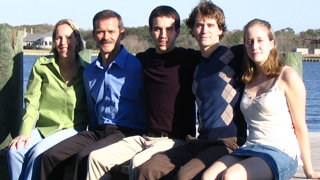
What legacy do you hope you’ll leave?
"To give a much greater opportunity to those that follow after me.
"I hope that the risks that I have taken and things I have accomplished have set an example and pushed back the edges of what’s possible so people will have the courage to do things that I never had the chance to do.
"I hope I have helped provide a safer and more option-filled path for people to do what I have done, as well as what I was unable to do."
Stay informed
We regularly host exhibitions as well as in-person and online events, including our Monday night lectures (members only) and regional events.
Would you like to stay up to date about our upcoming events and news? Log in, or create an account, and sign up for our newsletter.
